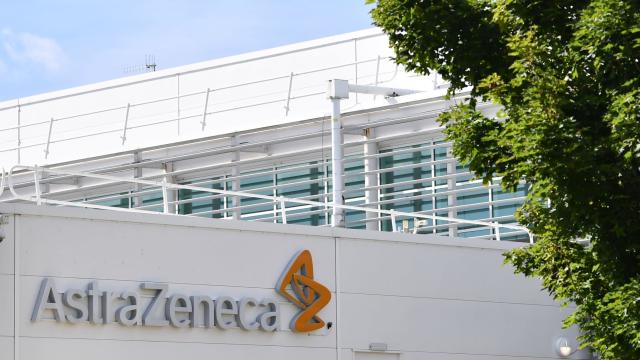A study from the UK is the latest to provide some early hope for an effective vaccine against the coronavirus that causes covid-19. Earlier today, Oxford University researchers revealed the promising results from an early phase clinical trial of their vaccine candidate. The vaccine appeared to be safely tolerated in healthy people; it also seemed to create a robust immune response in volunteers, though it’s still too soon to know whether that response will result in protective immunity.
The study’s results were published in the Lancet on Monday. It was a combination Phase I/II randomised, double-blinded, and controlled trial involving more than 1,000 healthy volunteers between the ages of 18 and 55. People received a shot in the arm of either the actual candidate or a control (a vaccine for meningococcal disease), then were monitored for 28 days. One small group of 10 were selected to receive a second dose of vaccine 28 days later, to test how a booster shot may affect safety and immune response. At two study sites, people were also given the mild pain reliever acetaminophen post-shot, to test whether the drug would help reduce any potential side-effects of the vaccine.
All in all, the study found there were no serious adverse effects reported in people who received the vaccine. There were more common mild-to-moderate adverse effects in the experimental group. For instance, 67% of people experienced pain at the injection site, compared to 38 per cent of the control group. Other more common symptoms included fever, chills, and headache, though their incidence was usually lower in people who also took acetaminophen.
Phase I and II trials are designed first and foremost to test the safety of an experimental treatment or vaccine in people. So the results above are the most important and relevant. These trials can also be used to pin down an optimal treatment dose. That said, the authors did collect data on some people’s immune response to the coronavirus.
In most observed people, there were noticeable levels of neutralising antibodies — the antibodies thought to be crucial to preventing reinfection — and T cells specific to the coronavirus that causes covid-19. These responses were strongest and present in all the people who received a booster dose.
“These results, together with the induction of both humoral [antibodies] and cellular immune responses, support large-scale evaluation of this candidate vaccine,” in ongoing Phase 3 trials, the authors wrote in the Lancet.
The Oxford vaccine, which is being developed in collaboration with the pharmaceutical company AstraZeneca, uses a virus that normally infects chimpanzees (a modified adenovirus that cannot replicate) to deliver a spike protein from the coronavirus. The spike protein is what the coronavirus uses to gain entry into cells, so the shot would give our immune system a familiarity with this specific coronavirus without actually having to fight off a full-blown infection. This preview is then supposed to induce a protective response against the virus that should prepare the immune system for the real deal. It had been earlier tested in rhesus macaque monkeys with similarly promising results.
As encouraging as this study is, it is still only one early trial involving a relatively small group of people. The real test will come from the much larger Phase III efficacy trials that are already underway for the Oxford vaccine and others; these trials will involve thousands of volunteers.
According to the New York Times vaccine research tracker, there are three other vaccine candidates in the Phase III process beside Oxford’s version. In total, there are more than 135 experimental vaccines in development and more than 30 that have reached human trials. One vaccine, developed by researchers in China, has been approved by the government for Chinese soldiers in a limited capacity, though details are still unclear about the scope of the program.
Editor’s Note: Release dates within this article are based in the U.S., but will be updated with local Australian dates as soon as we know more.
